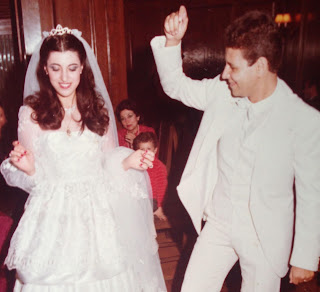Muhammed Ali | Agabi Alayk Ya Zaman (1971)
Historians refer to Muhammed Ali Street as the "school" where Ahmed learned his trade, with some accounts placing the singer in Al-Alalia Café in 1969, where he reputedly sharpened his mawwal chops. Others claim he was a plumber, a waiter, a busboy, and/or earned extra cash helping musicians carry their instruments.
When in 1964, American boxer Cassius Clay denounced his birthname as an artifact of slavery, it is unclear whether he knew that Muhammed Ali, bestowed upon him by Nation of Islam leader Elijah Muhammad, might refer to the Ottoman military commander who established a political dynasty in Nineteenth-Century Egypt after inviting scores of rival Mamaluks to a party and then slaughtering them, "Red Wedding"-style.
Cairo's Muhammed Ali Street runs North & South for perhaps a mile-and-a-half; it would take 15-20 minutes to leisurely stroll its full length. Even today, online maps show it dotted by several musical instrument stores; when the al-Adawis relocated to Cairo, it would have been crammed with them. One of the most famous, opened in 1906 by Syrian immigrant Gamil George, supplied ouds to Mohamed Abdel Wahab, Farid El Atrache, and other luminaries.
Historians refer to Muhammed Ali Street as the "school" where Ahmed learned his trade, with some accounts placing the singer in Al-Alalia Café in 1969, where he reputedly sharpened his mawwal chops. Others claim he was a plumber, a waiter, a busboy, and/or earned extra cash helping musicians carry their instruments.
According to the El Dahih video, Ahmed's parents cut him off financially in an effort to thwart his dreams of becoming a singer, which may have led to him taking on a series of odd jobs in an attempt to stay afloat while staying close to, and learning from, his singing idols. The video cites violinist Abdo Dagher, reputedly Ahmed's closest mentor at the time, recalling how Ahmed's career gets an early hint of validation when he's hired as a chorus member, then as a daf (drum) player. Andrew Simon's account has Ahmed playing the ney (reed flute) and riqq (tambourine).
From here, the superstar-to-be scrambles to take on anything that comes his way, singing at weddings and street parties until he graduates to nightclubs, alongside his proto-shaabi heroes.
It is during this early period that Ahmed cuts his first known recording: "Agabi Alayk Ya Zaman / Alawilat Ah" b/w "Yalliy Bitaemal Tayib / Agabi Alea Nas Ya Zaman," a 7" 45 RPM vinyl record released simultaneously in 1971 on the Tareqfon label.
The disc credits Ahmed Adaweya for the music and Egyptian lyricist Bakhit Bayoumi for the text. Bayoumi wrote lyrics for dozens of other artists, including Warda, Maya Yazbek, Al Thoulathi al Mareh (The Fun Trio), and Sharifa Fadel's sister, Sana Nada.
The same year he wrote the lyrics for Ahmed's debut single, Bakhit Bayoumi penned Al Thoulati al Mareh's "Ah M Alhb" b/w "Qalak Ayih," which featured music by Palestinian composer Riad al-Bunduk.
Note the laughter ("Aha ha ha ha") in the lyrics; in two years, Ahmed will release a similar vibe, but whether this is a coincidence or tribute or simple act of swiping is unknown.
"Agabi Alayk Ya Zaman" is one of a very few recordings cataloged on Discogs that attributes any writing credits to the singer. Given that all evidence suggests it is Ahmed's first-ever release, it seems odd that none of the English-language (or subtitled) accounts I have consulted even mention it.
(Listen to "Agabi Alayk Ya Zaman / Alawilat Ah")
(Listen to "Yalliy Bitaemal Tayib / Agabi Alea Nas Ya Zaman")
(You can also watch Ahmed perform a version of the song here.)
In an interview quoted by James R. Grippo in his essay "What's Not on Egyptian Television and Radio!" (Grippo's emphases), Ahmed reveals: "I consider myself an extension of prominent popular singers such as Shafiq Galal, Mohamed Rushdi, and Muhammad Abd al-Muttalib, who have preserved a kind of traditional singing that could be assimilated by simple, uneducated people."
Ahmed's admiration for Shafiq Galal seems to find validation via this (unfortunately truncated) clip of Galal performing a mawwal of the same title, presumably years earlier than the release of Ahmed's 45, although it isn't clear to me whether they are truly related:








Comments
Post a Comment